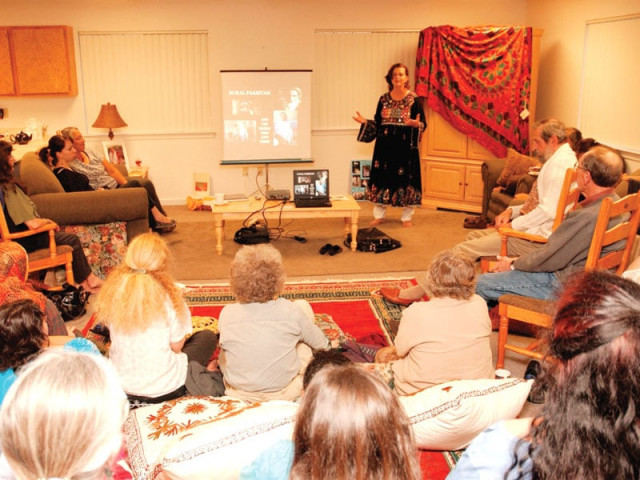Beyond borders: In Swat, an American helps women fight a life of poverty
Since 2006, Barbara Rabia O’Loren’s Roshni Center has provided economic opportunities.

Beyond borders: In Swat, an American helps women fight a life of poverty
While anti-American sentiments appear to soar in Pakistan, an American social worker has diligently continued her work for uplift of women in Swat.
Barbara Rabia O’Loren came to the Swat valley in March 2005 and fourteen months later, she established the Roshni Centre for Women to provide educational and financial opportunities to women from rural Swat.
“I found the women of Swat to be so hardworking. Compared to the west, Swati women have few modern conveniences and yet this does not keep them from managing their homes and taking care of their families,” California-based O’Loren told The Express Tribune. “They were so good to me that I thought maybe there is something I can do to show them how important they are.”
The project took shape after O’Loren and her close friend Nadia conducted a survey in autumn 2005 to collect information on women’s issues in rural areas. “One of the needs that appeared was a centre for women,” she said. The centre was eventually founded on May 10, 2006, with help from O’Loren’s friends in the US, Nadia and her sisters-in-law.
At the centre, women learn basic sewing skills and also have the opportunity to meet other women and form a support network.
“The women not only sew for themselves and their families but also learn embroidery. A small import company, The Lost Caravan, provides plain scarves to the women who do embroidery or beadwork on them. These scarves and shawls are then sent to me in California where I sell them. All profits are repatriated to the centre, and used to purchase sewing machines and supplies as well as fabric if the women don’t have their own,” O’Loren said.
In O’Loren’s words, the centre’s goal is to build support bridges between the women and children of Swat and the West. Apart from giving regular presentations in the West on Swat valley, she also sells products made in Pakistan other than those produced at the Roshni Centre.
For her, Swat is very much like home. “People are extremely courteous and very kind towards strangers.”
O’Loren believes it is nothing but miscommunication that creates a distance between the people of both regions. “Certainly some people have a distorted image of Swat, but if they take the time to research Swat Valley, they will see that mainstream media doesn’t always get the story correctly,” she says.
Published in The Express Tribune, May 14th, 2011.













COMMENTS
Comments are moderated and generally will be posted if they are on-topic and not abusive.
For more information, please see our Comments FAQ